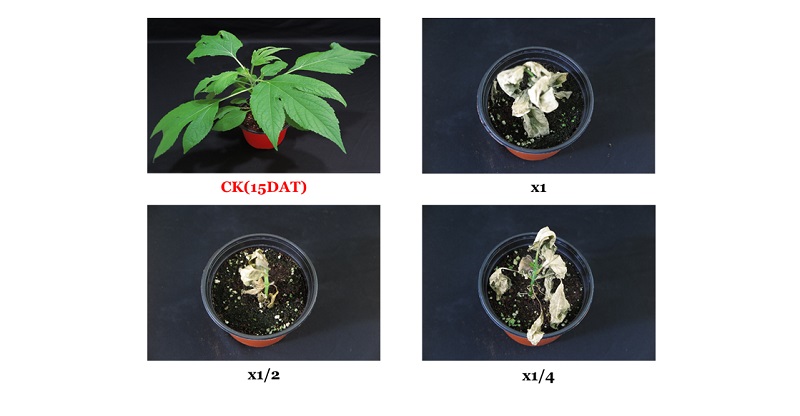Abstract
Figures & Tables

Fig. 2. Herbicidal activity of foliar application of the mutant N-29 broth filtrate of KR-001 to with middle leaf stage (4-5Ls) in a greenhouse condition. The representative pictures were taken 15 days after foliar application. DAT: Days after treatment.


